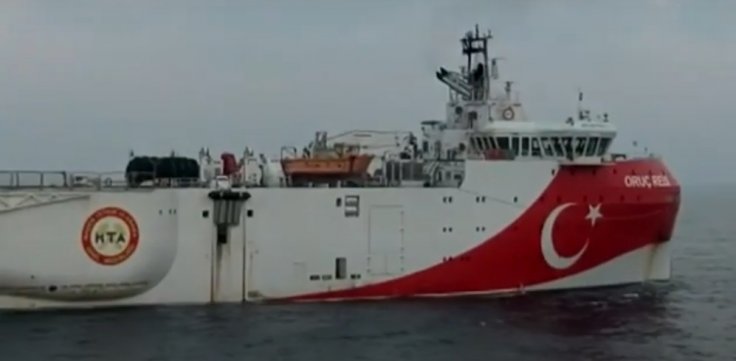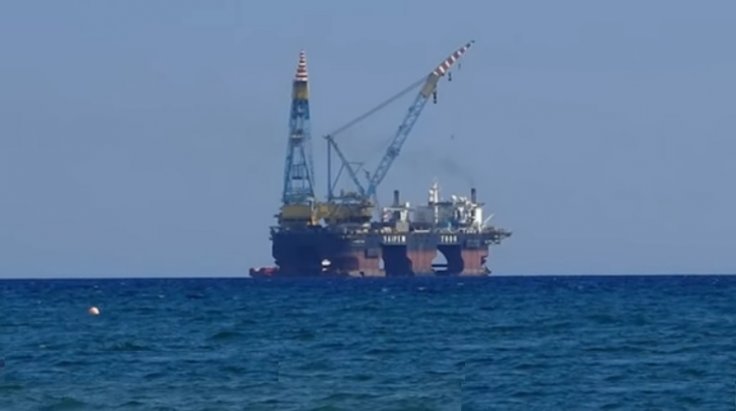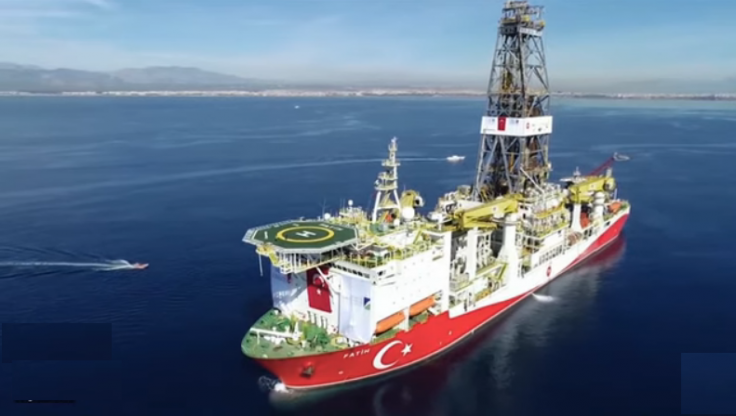Tensions are rising as NATO allies are competing for control of oil and gas reserves in the Eastern Mediterranean. On August 18, Turkey dispatched its Oruc Reis exploration vessel flanked by navy warships to an area off the coast of Cyprus, deepening its disputes with Cyprus and Greece.
The situation may soon spiral out of control as naval vessels from both countries made a show of force in the contested region of the Eastern Mediterranean.The race for gas and oil reserves only adds a new point of friction to old disputes but carving up the riches of the Mediterranean could prove to be a costly mistake.

Following the joint military exercise by Greece, Cyprus, Italy and France last week, Turkish President Erdogan said that it "will not back off" in defending its rights and interests over the natural gas resources in East Mediterranean. After all, Turkey doesn't want to lose out on exploiting the riches in the region, given that it claims to be have made its biggest natural gas find ever in the Mediterranean region.
Ankara's decision to continue seismic surveys in the disputed waters has angered Greece, as it considers the Turkish gas exploration illegal. That however, is just a myopic view of the situation. The recent discoveries are vital to the economies of several countries like Egypt, Syria, Lebanon, Palestine, Israel, Cyprus, Turkey and Greece, and hence this tension.
What's at Stake?

So, how much natural gas is at stake? Some estimates put the size of the reserves at around 2 billion barrels of oil and 4 trillion cubic meters of natural gas, which would put the region on a par with Venezuela and Nigeria. The United States could run for nearly a decade on that find alone. Additionally, there is a further 5.13 trillion cubic meters of gas estimated to be in the Nile Basin. It is no surprise then that Egypt, Cyprus, Greece, Turkey, Israel, Lebanon, Jordan and the Palestinian all want to move aggressively and exploit the wealth.
Everyone Wants a Share of the Pie
The Eastern Mediterranean has emerged as the new playground for the NATO allies of that region. The scene, however, was not the same till a decade ago when the Persian Gulf and Gulf of Mexico were more a bone of contention among the NATO countries.
The scenario started changing when Israel took the lead in exploiting and discovering oil and gas resources in East Mediterranean Sea. Since then as much as 4.47 billion ton equivalent of workable oil and gas reserves have been discovered in the 19 basins in the Eastern Mediterranean waters, with roughly another 12.28 billion ton left to be discovered.

Naturally, every country in that region now wants a share of the pie. Since Israel's first discovery of natural gas in the region, the equation between the countries have changed, with the formation of two separate blocks. Cyprus, Greece, Israel, Italy, Jordan, Palestine and Egypt came together to form the East Mediterranean Gas Forum (EMGF), in a bid to jointly develop the oil and gas resources in the region and build an energy pipeline around Turkey to pipe the resources to Europe.
And since then Turkey remains incensed. This saw the birth of the second bloc. Turkey has been working with the UN-recognized government in the Libyan capital of Tripoli, Qatar and 'North Cyprus', which is only recognized by Turkey, to safeguard its interests in the Eastern Mediterranean, North Africa and other regions.
However, everyone country in either side of the two blocks has vested interested here and wants to secure their share of natural gas. Egypt has started exploiting its reserves of gas and oil and is now a regional exporter. Lebanon, with the help of France and Russia, is gearing up to start commercial drilling. Europe has long wished to cut its reliance on Russian gas, and the energy-hungry trading bloc would be an ideal market for eastern Mediterranean natural gas.
With the birth of these two blocs, the demarcation of oil and gas resources in East Mediterranean has become a tool of political struggle among the countries. Turkey feels it is being increasingly isolated diplomatically, especially when it comes to regional energy deals.
Last year, a loose consortium to develop the resources in the East Mediterranean region was forged by countries comprising Israel, Egypt, Italy, Greece, Jordan and the Palestinian territories. Turkey was pointedly not invited. And in this heated climate, the possibility of a miscalculation leading to military action between the Turkey and Greece is only growing by the day.








